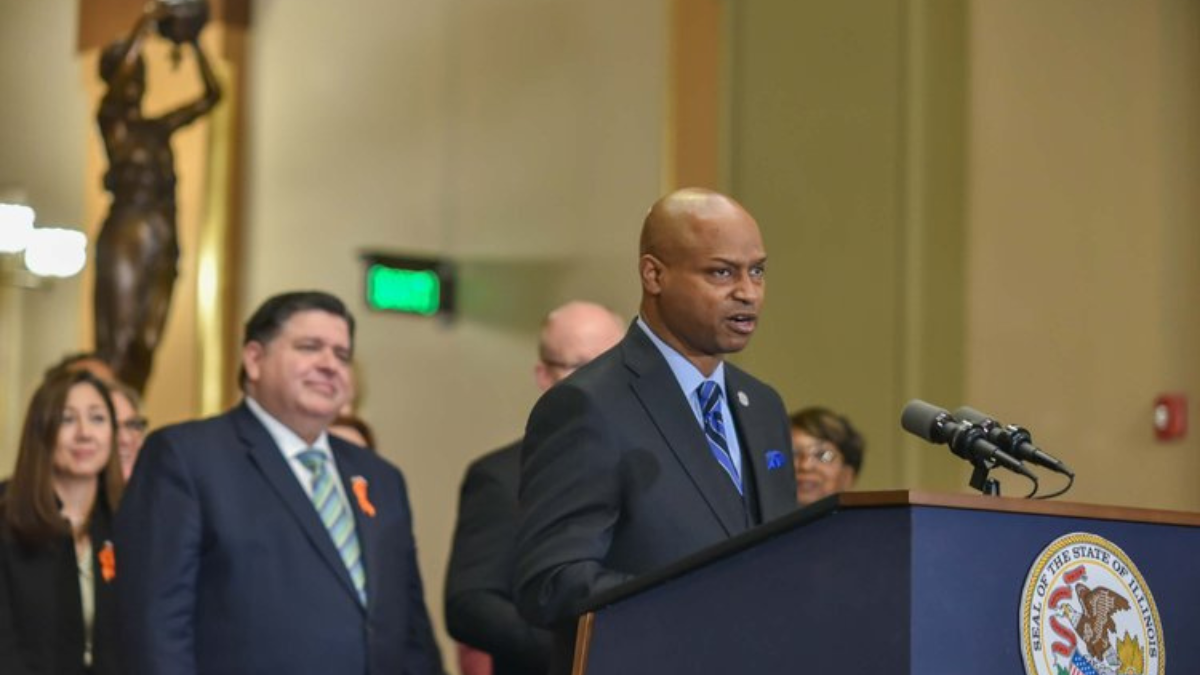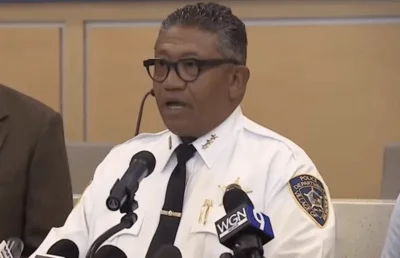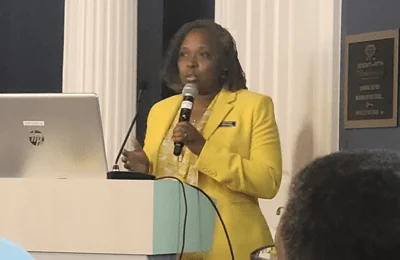Speaker Emanuel “Chris” Welch (D-Westchester) must decide whether to challenge a gubernatorial veto of a “sweetheart deal” amendment included in an Illinois energy bill | Provided
Speaker Emanuel “Chris” Welch (D-Westchester) must decide whether to challenge a gubernatorial veto of a “sweetheart deal” amendment included in an Illinois energy bill | Provided
Gov. J.B. Pritzker recently issued an amendatory veto to HB 3445, an energy omnibus bill, with specific recommendations to eliminate a section that would have granted Ameren Illinois the "right of first refusal" for transmission line construction in Illinois.
According to Politico, despite the “surprise” expressed by supporters of the bill, the governor's office has insisted that the vetoes were anticipated. Pritzker's team labeled the "right of first refusal" bill as a "sweetheart deal" benefiting just one utility company and said that such backroom deals were over.
Fallout from backroom deals such as the ComEd bribery and conspiracy scandal involving several of the utility company’s executives and former Speaker Michael Madigan, have left a black-eye on the reputations of both the state’s General Assembly and its largest utility.

| Provided
“I sure hope the Speaker doesn't offer another sweetheart deal to the big companies,” Willie Sellers, owner of Joliet based Sellers & Sellers Enterprises, Inc. told the West Cook News. “[It] will further hurt small businesses like mine from competing on a level playing field.”
Should the ROFR veto be reversed, Ameren would have “an unfair” advantage over ComEd if it benefited only them. Because of this, according to a veteran Illinois political observer, the ICC would likely rule in favor of also extending the benefit given to Ameren to ComEd as well.
In his veto message, Pritzker expressed concerns that the "right of first refusal" language would eliminate competition and raise costs for ratepayers. The provision would have given incumbent utility providers in the MISO region, like Ameren, a monopoly over new transmission lines. With over $3.6 billion in planned transmission construction, the governor warned of higher electricity bills for downstate Illinois residents.
“My administration has always been committed to working with stakeholders and our partners in the General Assembly to enact meaningful energy policy,” the Governor wrote. “However, I cannot support the ROFR provision of this legislation that will unnecessarily put a higher cost burden on consumers.”
Pritzker’s veto also referenced federal perspectives on the issue, noting that both the U.S. Department of Justice and the Federal Trade Commission criticized a similar federal proposal last year. These agencies pointed to the benefits of competitive bidding in transmission construction, including lower project costs and benefits to consumers through lower rates and improved service.
Prairie State Wire previously reported that utility watchdogs The Citizens Utility Board (CUB) of Illinois and the Electricity Transmission Competition Coalition (ETCC) raised concerns over the proposed amendment to Illinois House Bill 3445 as it was debated earlier this year. Both watchdog groups warned that the “right of first refusal” (ROFR) could lead to significant rate hikes for Illinois utility customers by stifling competition and establishing a monopoly for large companies like Ameren.
During the legislative session, both the ETCC and the CUB urged Illinois lawmakers to reject the amendment, emphasizing the need for transparency, cost control, and competition. Calling the proposed amendment "crony capitalism at its worst," they warned that it could lock in increased electricity prices for decades at the expense of consumers.
The upcoming General Assembly veto session, running from Oct. 24-26 and Nov. 7-9, will determine whether the vetoes are overridden or left to stand.
House Speaker Emanueal Welch's office did not respond to requests for comment on this story.







 Alerts Sign-up
Alerts Sign-up